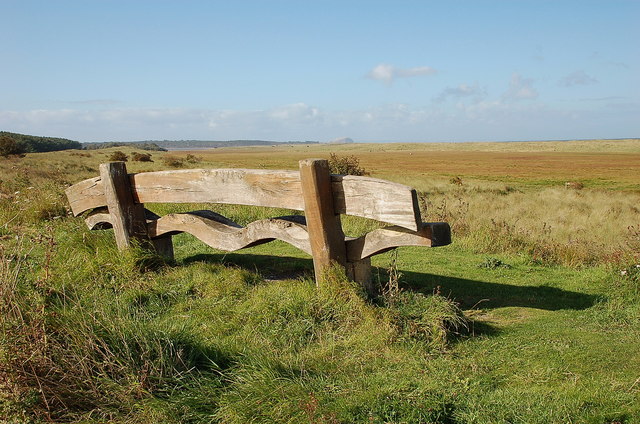Visitors to John Muir Country Park can explore the stunning coastline, with its sandy beaches, dramatic cliffs, and picturesque bays. The park is also home to a diverse range of wildlife, including seabirds, otters, and seals, making it a popular spot for birdwatching and wildlife spotting. For those who prefer more active pursuits, the park offers a variety of walking and cycling trails, as well as opportunities for horse riding, golf, and water sports.
Location and Accessibility
John Muir Country Park is located in East Lothian, Scotland, approximately 20 miles east of Edinburgh. The park is situated along the coast, between the towns of Dunbar and North Berwick.
By Car
If you are travelling by car, the park can be accessed via the A1. Take the Thistly Cross Roundabout exit and follow the signs for East Linton. Once in East Linton, follow the signs for the park. There is a car park located at Linkfield, which is the main entrance to the park.
By Bus
There are several bus routes that run to the park from Edinburgh, North Berwick and other nearby towns. The East Coast Buses service number 124 runs from Edinburgh to North Berwick, with stops at East Linton and the park. Alternatively, the number 120 service runs from Dunbar to North Berwick, with stops at the park.
By Train
The nearest train station to the park is Dunbar, which is approximately 6 miles away. ScotRail operates regular services from Edinburgh to Dunbar. From the station, you can take a taxi or catch a bus to the park.
On Foot
Facilities and Amenities
John Muir Country Park offers a range of facilities and amenities to enhance visitors’ experiences.
Park
The park is open all year round, and there is no admission fee. The park has ample parking space for visitors’ cars, and it is also accessible via public transport. The park has several walking trails, which vary in length and difficulty, providing visitors with an opportunity to explore the park’s diverse flora and fauna.
Showers and Toilets
The park has several toilets, including disabled and baby-changing facilities, located at various points throughout the park. Cold showers are available for visitors who require them.
Campsite
The park has a campsite that is open from April to September. The campsite has a capacity of 60 pitches and is suitable for tents, caravans, and motorhomes. The campsite has several amenities, including a shower block, toilets, and a washing-up area.
Shore Road
Natural History and Wildlife
John Muir Country Park in East Lothian is home to a diverse range of flora and fauna. The park’s grasslands, beaches, and habitats provide a rich environment for a variety of wildlife.
Plants such as sea rocket, sea sandwort, and sea holly can be found growing on the park’s sandy beaches. The grasslands are home to a variety of wildflowers, including oxeye daisy and bird’s-foot trefoil.
The park is also home to a variety of bird species, including kittiwake, eider duck, shelduck, skylark, meadow pipit, lapwing, and ringed plover. The park’s coastal location makes it an ideal spot for seabirds such as gannet and terns.
In addition to bird species, the park is also home to a variety of other wildlife. Visitors may spot otters, seals, and dolphins in the waters surrounding the park.
The park’s habitats, including its grasslands and beaches, are carefully managed to ensure that they remain healthy and sustainable. This management helps to preserve the park’s natural history and ensure that its wildlife can continue to thrive.
John Muir’s Legacy
John Muir was a renowned naturalist, conservationist, and explorer who was born in Scotland in 1838. He is best known for his efforts to preserve wilderness areas in the United States, including Yosemite National Park and the Grand Canyon. Muir’s love of nature was instilled in him at a young age, and he spent much of his life exploring the natural world.
In addition to his work as a conservationist, Muir was also an accomplished explorer. He travelled extensively throughout the United States and around the world, including to Alaska, South America, and Africa. His adventures inspired many others to explore the natural world and appreciate its beauty and wonder.
Despite spending much of his life in the United States, Muir never forgot his Scottish roots. In fact, he returned to Scotland several times throughout his life, and his love of the Scottish countryside is evident in his writings. Muir’s legacy continues to inspire people around the world to appreciate and protect the natural world.
Some key points about John Muir’s legacy include:
- Muir’s work as a naturalist and conservationist helped to inspire the creation of the National Park Service in the United States.
- Muir’s writings and activism helped to raise awareness about the importance of preserving wilderness areas for future generations.
- Muir’s travels and adventures inspired many others to explore the natural world and appreciate its beauty and wonder.
- Despite spending much of his life in the United States, Muir never forgot his Scottish roots and returned to Scotland several times throughout his life.
Nearby Attractions
Tyninghame Beach
Tyninghame Beach is a beautiful sandy beach located just a short distance from John Muir Country Park. The beach is popular among locals and visitors alike, and offers stunning views of the coastline. Visitors can enjoy a walk along the beach, sunbathing, swimming, or simply relaxing and taking in the scenery.
East Links Family Park
East Links Family Park is a popular family-friendly attraction located just a few miles from John Muir Country Park. The park offers a range of activities for children, including a petting zoo, go-karting, and a miniature railway. Adults can also enjoy the park’s scenic walks and picnic areas.
Buttercup Cafe
The Buttercup Cafe is a charming cafe located within the grounds of John Muir Country Park. The cafe offers a range of delicious homemade food, including soups, sandwiches, cakes, and scones. Visitors can enjoy their meal while taking in the beautiful views of the park.
Tantallon Castle
Tantallon Castle is a historic castle located just a short drive from John Muir Country Park. The castle dates back to the 14th century and offers visitors a glimpse into Scotland’s rich history. Visitors can explore the castle’s ruins, take in the stunning views of the coastline, and learn about the castle’s fascinating past.

